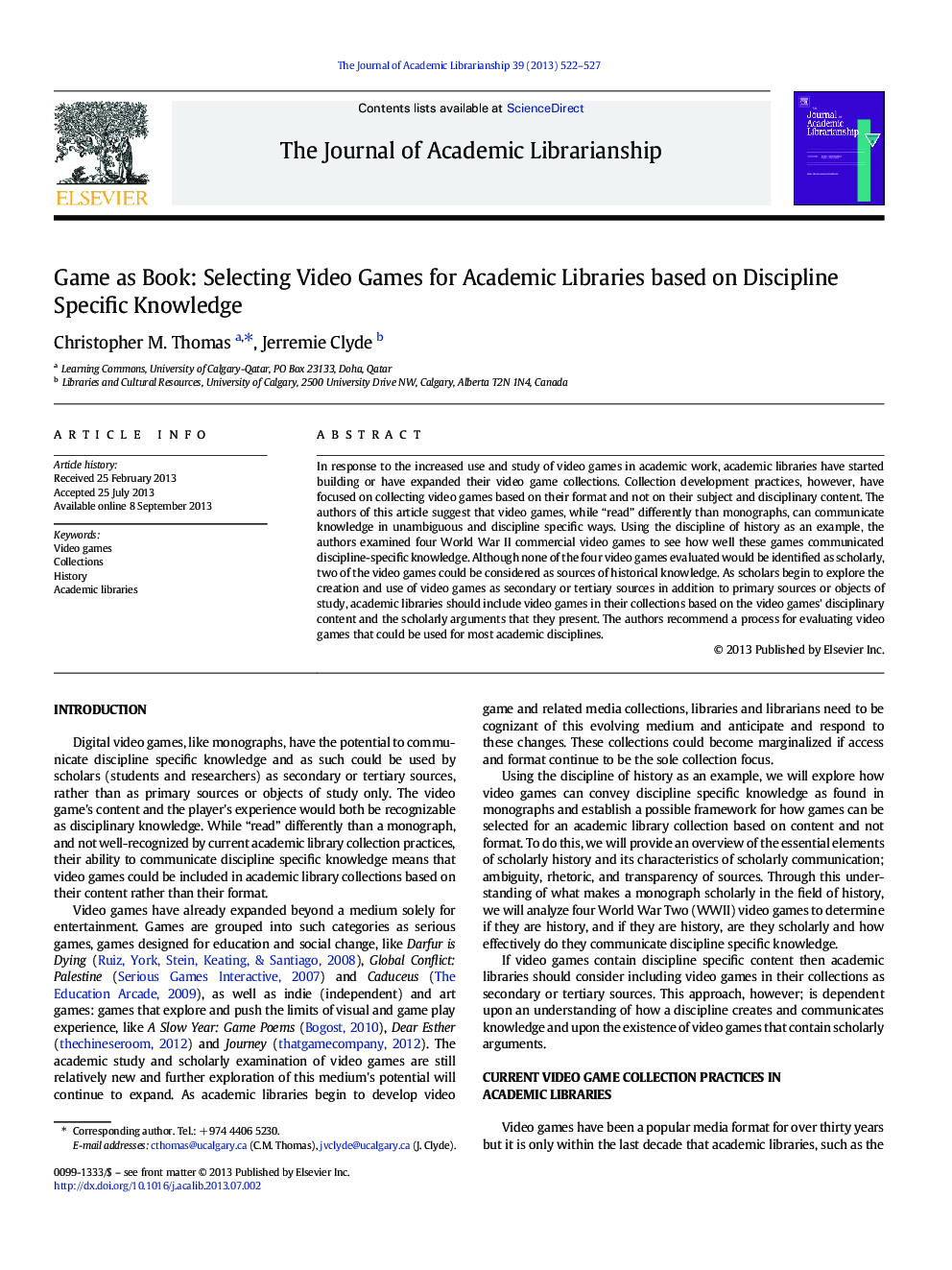| Article ID | Journal | Published Year | Pages | File Type |
|---|---|---|---|---|
| 358425 | The Journal of Academic Librarianship | 2013 | 6 Pages |
In response to the increased use and study of video games in academic work, academic libraries have started building or have expanded their video game collections. Collection development practices, however, have focused on collecting video games based on their format and not on their subject and disciplinary content. The authors of this article suggest that video games, while “read” differently than monographs, can communicate knowledge in unambiguous and discipline specific ways. Using the discipline of history as an example, the authors examined four World War II commercial video games to see how well these games communicated discipline-specific knowledge. Although none of the four video games evaluated would be identified as scholarly, two of the video games could be considered as sources of historical knowledge. As scholars begin to explore the creation and use of video games as secondary or tertiary sources in addition to primary sources or objects of study, academic libraries should include video games in their collections based on the video games' disciplinary content and the scholarly arguments that they present. The authors recommend a process for evaluating video games that could be used for most academic disciplines.
